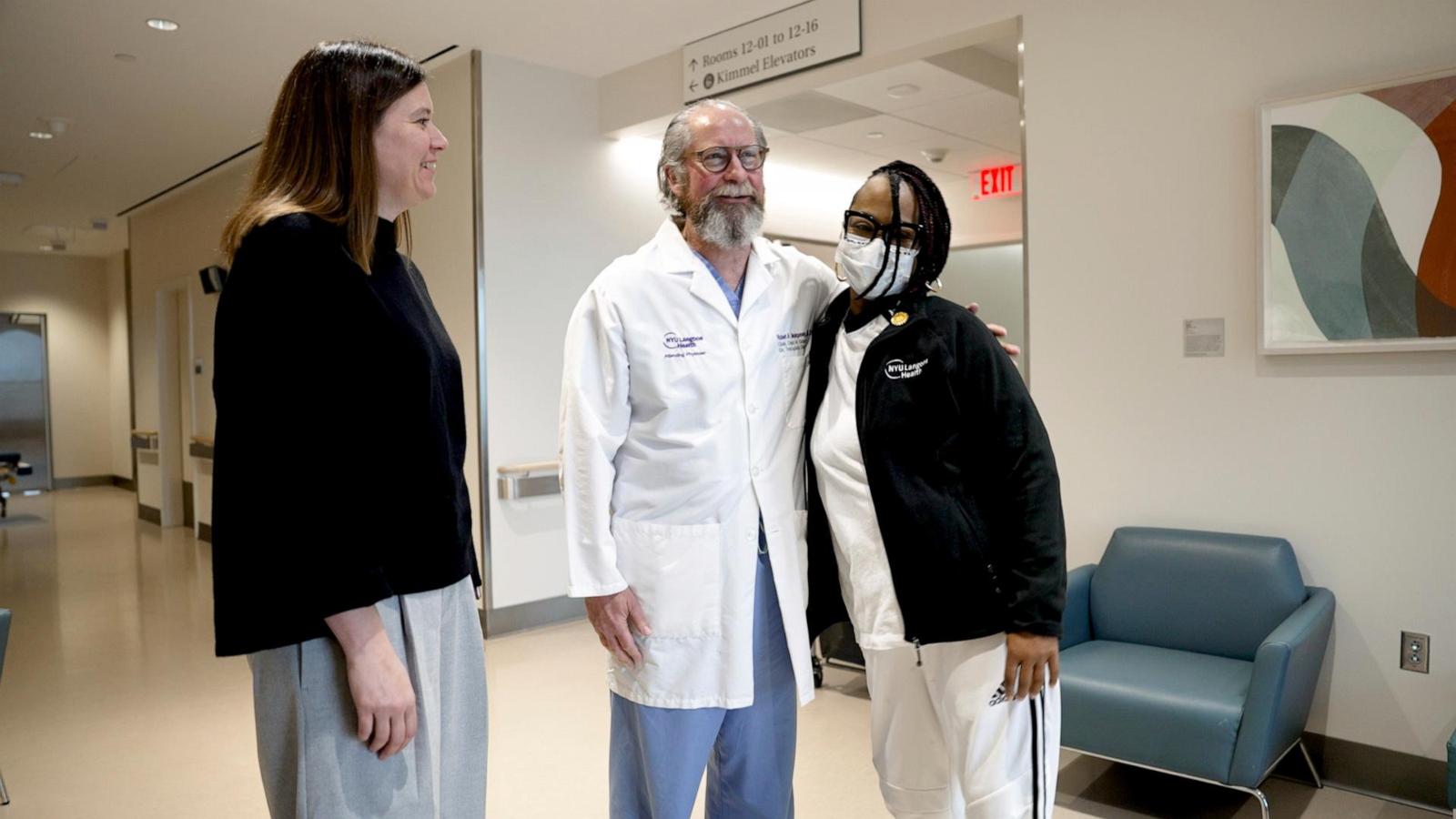Pig Kidney Transplant: A Breakthrough in Organ Donation?
Imagine a world where organ failure isn't a death sentence. This might sound like science fiction, but thanks to a revolutionary procedure, it's inching closer to reality! For the first time in medical history, a woman's life has been dramatically extended with a pig's kidney—a monumental leap that has sparked a wave of hope in the organ donation world. This groundbreaking achievement opens new possibilities for millions facing organ failure and raises questions about the future of xenotransplantation.
The Groundbreaking Surgery
The remarkable transplant was performed on Towana Looney, an Alabama resident. Suffering from kidney failure, Looney had endured eight long years of dialysis. Facing an ever-growing shortage of human kidneys, she became the ideal candidate for a pioneering xenotransplantation procedure. After being given the extraordinary opportunity to participate in this experimental program and receiving FDA approval, her life hung in the balance. It wasn't merely the success of the surgery but also Looney's astonishing post-operative recovery that marks this as a groundbreaking step forward.
A Hopeful Outlook
Just eleven days after the surgery, Looney was discharged. This speedy recovery stands in stark contrast to previous attempts using gene-edited pig organs which were tragically unsuccessful. The key to Looney’s success and her robust health post-operation stems from the pioneering use of gene-edited pig kidneys—minimizing rejection of the new organ. This opens new pathways for thousands of other patients currently relying on dialysis. She even received an honorary discharge from the military! Now discharged and back in Alabama, her recovery is being meticulously monitored. The hope is that Looney will continue to thrive. Her successful outcome is helping accelerate more experimental transplants, as we continue to see a huge disparity in the availability of human-to-human transplants and patients currently requiring immediate intervention.
Xenotransplantation: A Solution to the Organ Shortage?
The current organ shortage is nothing short of a crisis, with thousands of lives tragically lost while waiting for a donor organ. The potential impact of xenotransplantation cannot be understated. The remarkable survival of the patient following the procedure signifies a major stride for scientists involved. Scientists are making huge efforts to address the challenges surrounding transplantation by performing several pre-surgical treatments on patients. However, this still hasn't solved the primary organ donor shortage issues. Genetic engineering has allowed the manipulation of pig organs to increase their compatibility and decrease rejection rates in humans. In other words, if a procedure can prove effective without jeopardizing patient health, xenotransplantation may just solve this pressing crisis.
Overcoming Challenges
The journey to success wasn't without setbacks. Previous xenotransplantation attempts resulted in disappointing outcomes, leading to patient fatalities within two months. The differences between these results may lie in genetic compatibility issues. These early failures led to a more cautious approach, making the positive results of the groundbreaking study particularly momentous and a huge leap toward resolving organ donor shortages. What was most apparent following previous trials and from observations within medical science was the fact that patient health prior to surgery played an instrumental role in their successful post-operative health. The success and speed of recovery seen in Towana Looney are largely credited to her overall positive health before undergoing surgery. Despite earlier setbacks, Looney was determined and did not develop serious heart complications prior to surgery.
The Future of Organ Transplantation
Looney's success offers a beacon of hope in the world of organ transplantation, suggesting a game-changing future that may eradicate many organ donor crises worldwide. This transplant serves as a clear illustration of scientific triumph over incredible medical challenges. This successful story should not downplay the crucial need for continued research and safety measures. This breakthrough paves the way for larger, more controlled clinical trials, while research continues on genetic editing and other innovations to further decrease the probability of organ rejection. What we need now are several follow-up tests and patient experiences in the hope that we can start creating large-scale solutions that resolve critical medical issues. The positive result that has come out of Looney's surgery encourages further studies and allows the transplantation world to move closer to providing much-needed treatment solutions for organ failure. Further exploration into using genetically modified animal organs will enable more lives to be saved. This is because organs from animals provide a readily available source that may end up resolving the growing and devastating shortage.
A New Era of Possibilities
The work of scientists, doctors, and researchers in solving this medical crisis has ushered in a potential paradigm shift that allows the scientific community to progress even further with research trials and the possibility of discovering new, creative ways to end organ failure issues. With this remarkable surgery, the field of organ transplantation has entered a new and promising era, signaling the advent of potentially unlimited organ sources and innovative therapeutic treatments.
Take Away Points
- A successful pig kidney transplant has provided new hope for those waiting for an organ transplant.
- Xenotransplantation offers a potential solution to the ongoing global organ shortage.
- The recovery of Towana Looney is highly encouraging for the future of this innovative surgical procedure.
- Further research is essential for enhancing safety and improving compatibility in xenotransplantation.




